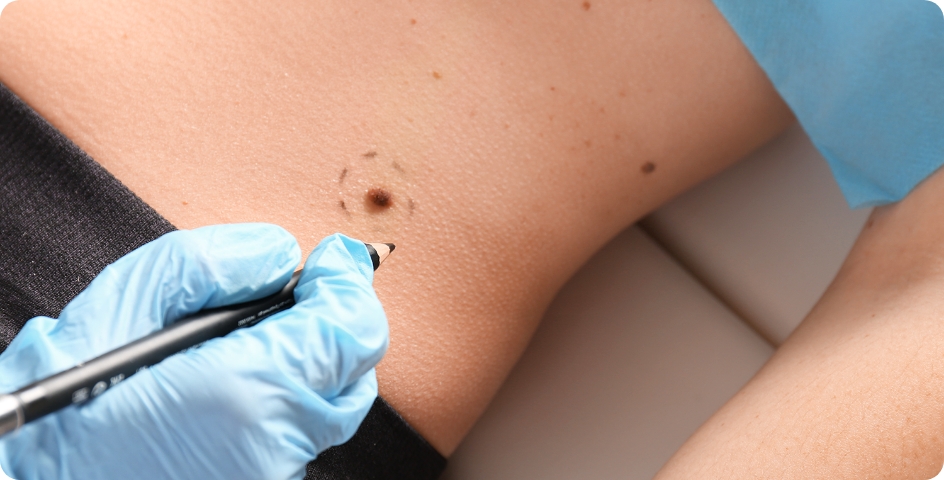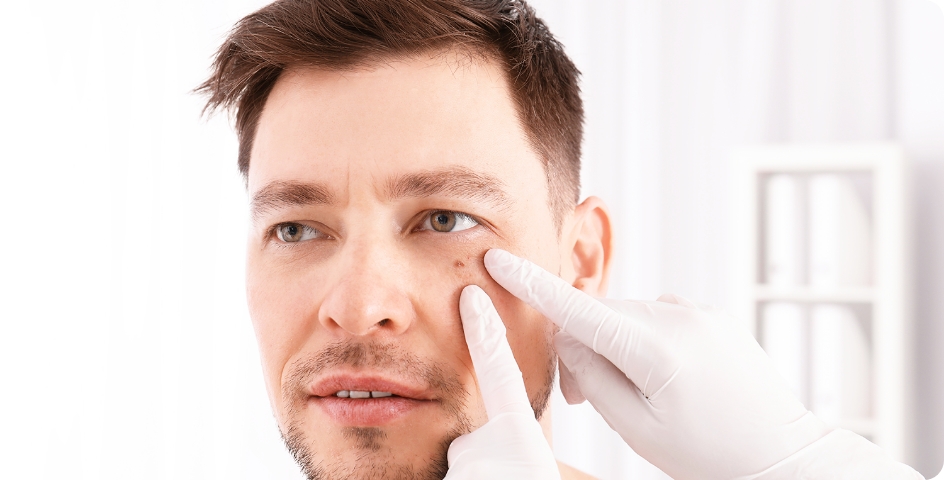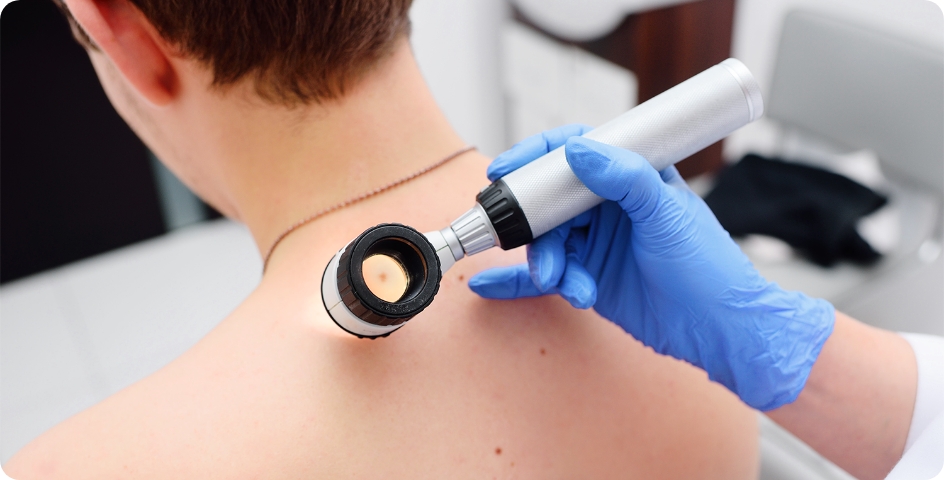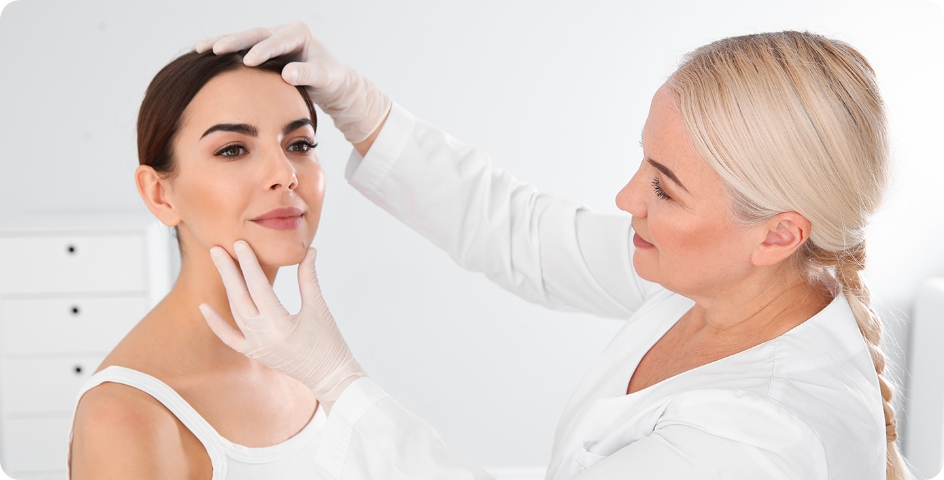Skin Cancer Treatment in Turkey
Healthy Türkiye helps you find the best skin cancer treatment in Turkey at affordable prices and adopts a 360-degree service approach in all areas of health through affiliated hospitals.
- Medical Treatment
- Cancer Treatment in Turkey
- Image Guided Radiotherapy in Turkey
- Image-Guided Radiosurgery in Turkey
- Intensity-Modulated Radiation Therapy in Turkey
- Kidney Cancer Treatment in Turkey
- Leukemia Treatment in Turkey
- Liver Cancer Treatment in Turkey
- Lung Cancer Treatment in Turkey
- Lymphoma Treatment in Turkey
- Bladder Cancer Treatment in Turkey
- Bone Marrow Transplant in Turkey
- Brachytherapy in Turkey
- Brain Cancer Treatment in Turkey
- Breast Cancer Treatment in Turkey
- Cervical Cancer Treatment in Turkey
- Chemotherapy in Turkey
- Colon Cancer Treatment in Turkey
- Hormonal Therapy in Turkey
- Bone Cancer Treatment in Turkey
- Endometrial Cancer Treatment in Turkey
- Gastric Cancer Treatment in Turkey
- Gene Therapy in Turkey
- Melanoma Treatment in Turkey
- Mesothelioma Treatment in Turkey
- Metastatic Cancer Treatment in Turkey
- Mouth Cancer Treatment in Turkey
- Neuroblastoma Treatment in Turkey
- Oral Cancer Treatment in Turkey
- Ovarian Cancer Treatment in Turkey
- Pancreatic Cancer Treatment in Turkey
- Photodynamic Therapy in Turkey
- Proton Therapy in Turkey
- Sarcoma Treatment in Turkey
- Skin Cancer Treatment in Turkey
- Stereotactic Body Radiation Therapy in Turkey
- Targeted Therapy in Turkey
- Testicular Cancer Treatment in Turkey
- Throat Cancer Treatment in Turkey
- Thyroid Cancer Treatment in Turkey
- Uterine Cancer Treatment in Turkey
- Volumetric-Modulated Arc Therapy in Turkey
- Prostate Cancer Treatment in Turkey
- Robotic Radical Prostatectomy Surgery in Turkey
- Hemato-Oncology Treatment in Turkey
- Skin Cancer Malignant Melanoma Treatment in Turkey
- Colorectal Cancer Treatment in Turkey
- Radiotherapy in Turkey
- Immunotherapy in Turkey
- TIL Therapy in Turkey
- TCR-T Therapy in Turkey
- CAR NK Cell Therapy in Turkey
- Gene Editing Therapy in Turkey
- Dendritic Cell Vaccines in Turkey
- Oncolytic Virus Therapy in Turkey
- NK-92 Cell Therapy in Turkey
- Cytokine Therapy in Turkey
- Bispecific T-cell Engager in Turkey
- Macrophage-Based Therapy in Turkey
- IPSC-Derived Immunotherapies in Turkey
- Glossectomy in Turkey
- Regulatory T Cell Therapy in Turkey
- Gamma Delta T Cells Therapy in Turkey
- Homepage
- Medical Treatment
- Skin Cancer Treatment in Turkey

About Skin Cancer Treatment in Turkey
Skin cancer treatment in Turkey is a type of cancer treatment that is widely performed and uses current techniques. Cancer starts when healthy cells change and grow out of control, forming a mass called a tumor. A tumor might be cancerous or benign. A cancerous tumor is malignant, meaning it can grow and spread to other areas of the body. A benign tumor can grow but will not spread.
Specialists diagnose skin cancer in more than 20 million each year, making it the most common type of cancer. If skin cancer is diagnosed early, it can generally be treated with topical medicines, procedures done in the office by a dermatologist or outpatient surgery. A dermatologist in Turkey is a doctor who specializes in diseases and cases of the skin. As a consequence, skin cancer is responsible for less than 1 percent of all cancer deaths.
In some conditions, skin cancer might be more advanced and require management by a multidisciplinary team that usually includes a dermatology department, a surgical oncologist, a radiation oncologist, and a medical oncologist. These specialists will meet with a patient, and together they will recommend the best path forward to treat skin cancer. In some conditions, the surgical oncologist will suggest surgery be performed in an operating room when the procedure to treat the cancer is too extensive for an office setting. Other times, radiation therapy and/or treatments using medicine given by mouth or by vein are suggested by the team either in place of or in combination with surgery.

Skin Cancer Treatment Procedure in Turkey
Skin cancer treatment in Turkey has been carried out for many years with many different methods. Skin cancer happens when skin cells create and multiply in an uncontrolled, unorderly way. Typically new skin cells form when cells produce old and die or when they become damaged. When this process does not work as it should, a quick growth of cells (some of which might be abnormal cells) results. This collection of cells might be noncancerous (benign), which doesn’t spread or cause harm, or cancerous, which might spread to nearby tissue or other areas in your body if not caught and treated early. Skin cancer is generally caused by ultraviolet (UV) light exposure from the sun.
There are three basic types of skin cancer:
Basal cell carcinoma
Squamous cell carcinoma
Melanoma
Basal cell carcinoma and squamous cell carcinoma are the most seen types of skin cancer and are sometimes called “non-melanoma skin cancer.” Melanoma is not as seen as basal cell or squamous cell carcinomas but is the most dangerous form of skin cancer. If left untreated or caught at a late stage, melanomas are more likely to spread to organs beyond the skin, making them difficult to treat and potentially life-limiting.
Fortunately, if skin cancer is diagnosed and treated early, most patients are cured. This is why it is important to take a few precautions and to talk with your specialist at Healthy Türkiye if you think you have any signs of skin cancer.

We Care About Your Health
Healthy Türkiye provides the best for your health and comfort. You will feel privileged with us.
7/24 Quality Personal Assistance Throughout Your Journey
Customizable for You All-Inclusive Packages
Get the Right Advice for your Health
Types of Skin Cancer
The types of skin cancer a person gets is identified by where cancer starts. If cancer starts in skin cells called basal cells, the person has basal cell skin cancer. When cells that give our skin its color become cancerous, melanoma is created. Here you will see what the most common types of skin cancer can look like and who tends to develop each type.
There are three main skin cancer types. These;
Basal Cell Cancer
Basal cell carcinoma is one type of skin cancer. Basal cell carcinoma starts in the basal cells, a type of cell within the skin that produces new skin cells as old ones die off. Basal cell carcinoma generally looks like a slightly transparent bump on the skin, though it can take other forms. Basal cell carcinoma occurs most commonly in parts of the skin that are exposed to the sun, such as your head and neck. Most basal cell carcinomas are thought to be caused by prolonged exposure to ultraviolet (UV) radiation from sunlight. Avoiding the sun and using sunscreen might help protect against basal cell carcinoma.
Squamous Cell Carcinoma
Squamous cell carcinoma of the skin is a common form of skin cancer that forms in the squamous cells that make up the middle and outer layers of the skin. Squamous cell carcinoma of the skin is generally not life-threatening, though it can be aggressive. Untreated, squamous cell carcinoma of the skin might grow large or spread to other parts of your body, causing serious complications. Most squamous cell carcinomas of the skin are the consequence of prolonged exposure to ultraviolet (UV) radiation, either from sunlight or from tanning beds or lamps. Avoiding UV light helps decrease your risk of squamous cell carcinoma of the skin and other forms of skin cancer.
Melanoma Skin Cancer
Melanoma, the most critical type of skin cancer, develops in the cells (melanocytes) that produce melanin, the pigment that gives your skin its color. Melanoma can also develop in your eyes and, inside your body, such as in your nose or throat.
The exact cause of all melanomas is not clear, but exposure to ultraviolet (UV) radiation from sunlight or tanning lamps and bed growth increases your risk of developing melanoma. Limiting your exposure to UV radiation can help decrease your risk of melanoma.
The risk of melanoma seems to be growing in people under 40, especially women. Knowing the skin cancer symptoms and signs can help ensure that cancerous changes are detected and treated before cancer has spread. Melanoma can be treated successfully if it is diagnosed at an early stage skin cancer.
Causes of Skin Cancer
Over 95 percent of skin cancer cases are caused by exposure to UV radiation. When unprotected skin is exposed to UV radiation, how the cells look and behave can reform. UV radiation most frequently comes from the sun, but it can also come from artificial sources, such as arc welders, glue curing lights (e.g., for artificial nails), and solariums (also known as tanning beds or sun lamps). Solariums are now prohibited for commercial use in Australia because research shows that people who use them have a much greater risk of developing skin cancer.
UV radiation cannot be felt, and it is not related to temperature. It can cause sunburn, premature skin aging, and skin cancer by damaging skin cells. You cannot always see sun damage to the skin – it can begin long before you get sunburnt or develop a tan, and the damage adds up over time.

Types of Skin Cancer Treatment in Turkey
Skin cancer treatment in Turkey, different types of specialists often work together to create a patient’s overall treatment plan that combines different types of treatments. For non-melanoma skin cancer, these specialists might include dermatologists, surgeons or surgical oncologists, plastic surgeons, radiation oncologists, and medical oncologists. This is known as a multidisciplinary team. When a multidisciplinary care team in Turkey meets to discuss a case, it is generally called a tumor board. Cancer care teams involve a variety of other healthcare professionals, such as physician assistants, nurse practitioners, nurses, pharmacists, social workers, counselors, dietitians, and others.
Treatment options and suggestions depend on several factors, involving the size and location of the skin cancer, possible side effects, and the patient’s preferences and overall health. Take time to learn about all of your treatment choices, and be sure to ask questions about things that are unclear. Talk with your specialist at Healthy Türkiye about the goals of each treatment and what you can expect while receiving the treatment. These types of talks are known as “shared decision-making.” Shared decision-making is when you and your specialists work together to choose treatments that fit the aims of your care. Shared decision-making is particularly important for non-melanoma skin cancer because there are different treatment options.
The common types of treatments used for skin cancer are described below. Your care plan also includes treatment for skin cancer symptoms and side effects, an important part of cancer care.
Surgery for Skin Cancer Treatment in Turkey
Primary melanoma in Turkey is generally treated with surgery. Once the Breslow thickness is determined, a wide local excision is often undertaken. The width of the excision will be determined by the depth and stage of the melanoma. It is critical that this be performed by a team experienced in melanoma excision that is part of the skin cancer Multi-Disciplinary Team (MDT) team.
Depending on the stage, a patient might also be offered a sentinel lymph node biopsy to check if the skin cancer has spread to local nodes. This is carried out under general anesthesia at the same time as the wider excision. A positive consequence means that the skin cancer has started to spread, and the treating consultant will discuss further treatment options with the patient.
Mohs Surgery for Skin Cancer Treatment in Turkey
This procedure is for larger, recurring, or difficult-to-treat skin cancers that might involve both basal and squamous cell carcinomas. It is generally used in areas where it is necessary to conserve as much skin as possible, such as on the nose. During Mohs surgery, your specialist extracts the skin growth layer by layer, examining each layer under the microscope, until no abnormal cells remain. This procedure allows cancerous cells to be extracted without removing an excessive amount of surrounding healthy skin.
Radiotherapy for Skin Cancer Treatment in Turkey
Radiotherapy is not often used to treat melanoma, which generally is not radiosensitive, but there are some instances when it can be useful, involving the treatment of brain metastases and bony metastases. It is often only used for advanced diseases. Radiotherapy does have side effects, and these vary depending on the site of the skin cancer treatment. Patients might experience reddening of the skin or feel sore and fatigued during the treatment period, but this often begins to disappear within a fortnight after the treatment for skin cancer ends.
Chemotherapy for Skin Cancer Treatment in Turkey
Chemotherapy is a type of anti-cancer medication treatment. It uses anti-cancer (cytotoxic) medications to destroy cancer cells. Different chemotherapy medications work in different ways. They mainly destroy cancer cells by disrupting the way they work. To treat skin cancers, you may have chemotherapy as a cream (topical treatment) directly on your skin cancer. It is very rare for specialists to use chemotherapy through a drip into a vein, to treat skin cancer.
Isolated Limb Perfusion for Skin Cancer Treatment in Turkey
Isolated limb perfusion (ILP) is a specialized surgical method for the treatment of cancers in limbs, often melanomas and sarcomas. Melanoma might spread with multiple outbursts of the tumor, progressing gradually higher up the limb before progressing to the lymph nodes. ILP provides high doses of a combination of anti-cancer medications directly to a limb at concentrations too high for the vital organs to tolerate. To prevent organ damage, the lamb's blood supply is isolated from the rest of the body during the surgical operation via a tourniquet.
The limb is connected by the main artery and vein to a cardiac bypass device to oxygenate the blood while the chemotherapy is given, together with a protein called tumor necrosis factor that interacts with both the medications and the cancer cells to make the treatment more effective. This combination circulates through the limb for an hour before the medications are washed out and the limb is reconnected to normal circulation.
After Skin Cancer Treatment in Turkey
Generally, cure for skin cancer is performed surgically in a dermatologist’s office in Turkey. Of the skin cancers that do recur, most do so within three to four years. Therefore, follow up with your dermatologist as suggested. Make an appointment immediately if you suspect an issue. If you have advanced malignant melanoma, your specialist might want to see you every few months. These visits might involve total body skin exams, regional lymph node checks, and periodic chest X-rays and body scans. Over time, the intervals between follow-up appointments will grow. Finally, these checks may be done only once a year.

2026 Cost of Skin Cancer Treatment in Turkey
All types of medical attention, like skin cancer treatment, are very affordable in Turkey. Many factors are also included in determining the cost of skin cancer treatment in Turkey. Your process with Healthy Türkiye will last from the time you decide to have a treatment for skin cancer in Turkey until the time you are fully recovered, even if you are back home. The exact cost of a skin cancer treatment procedure in Turkey depends on the type of operation involved.
The cost of skin cancer treatment in Turkey does not demonstrate many variations in 2026. Compared to costs in developed countries like the United States or the UK, skin cancer treatment costs in Turkey are relatively low. So, it’s no wonder patients from across the world visit Turkey for skin cancer treatment procedures. However, price is not the only factor affecting choices. We suggest looking for hospitals that are safe and have good treatment for skin cancer reviews on Google. When people decide to seek medical help for skin cancer treatment, they will not only have low-cost procedures in Turkey, but also the safest and best treatment.
At clinics or hospitals contracted with Healthy Türkiye, patients will receive the best skin cancer treatment from specialist doctors in Turkey at affordable rates. Healthy Türkiye teams provide medical attention, skin cancer treatment procedures, and high-quality treatment to patients at a minimum cost. When you contact Healthy Türkiye assistants, you can get free information about the cost of skin cancer treatment in Turkey and what this cost covers.
Why Is Skin Cancer Treatment Cheaper in Turkey?
One of the main considerations before traveling abroad for skin cancer treatment is the cost-effectiveness of the whole process. Many patients think that when they add flight tickets and hotel expenses to their skin cancer treatment costs, it will become very expensive to travel, which is not true. Contrary to popular belief, round-trip flight tickets to Turkey for skin cancer treatment can be booked very affordably.
In this case, assuming you are staying in Turkey for your skin cancer treatment, your total travel expense of flight tickets and accommodation will only cost less than any other developed country, which is nothing compared to the amount that you are saving. The question “Why is skin cancer treatment cheaper in Turkey?” is so common among patients or people simply curious about getting their medical treatment in Turkey. When it comes to treatment for skin cancer prices in Turkey, there are 3 factors allowing for cheaper prices:
The currency exchange is favorable for whoever looking for skin cancer treatment has a euro, dollar, or pound;
The lower cost of living and cheaper overall medical expenses such as skin cancer treatment;
For skin cancer treatment, incentives are given by the Turkish Government to medical clinics working with international clients;
All these factors allow for cheaper skin cancer treatment prices, but let’s be clear, these prices are cheaper for people with strong currencies (as we said, euro, dollar, Canadian dollar, pound, etc).
Every year, thousands of patients from all over the world come to Turkey to get treatment for skin cancer. The success of the healthcare system has increased in recent years, especially for skin cancer treatment. It’s easy to find well-educated and English-speaking medical professionals in Turkey for all kinds of medical treatment, such as skin cancer treatment.

Why Choose Turkey for Skin Cancer Treatment?
Turkey is a common choice among international patients seeking advanced skin cancer treatment. Turkey’s health procedures are safe and effective, with a high success rate in treating skin cancer. The increasing demand for high-quality skin cancer treatment at affordable prices has made Turkey a popular medical travel destination. In Turkey, treatment for skin cancer is performed by highly experienced and trained doctors with the most advanced technology in the world. Skin cancer treatment is done in Istanbul, Ankara, Antalya, and other major cities. The reasons for choosing skin cancer treatment in Turkey are as follows:
High-quality hospitals: Joint Commission International (JCI) accredited hospitals have dedicated skin cancer treatment units that are specially designed for patients. International and national strict protocols provide effective and successful skin cancer treatment for patients in Turkey.
Qualified experts: The expert teams include nurses and specialist doctors, together to carry out treatment for skin cancer according to the patient’s needs. All the included doctors are highly experienced in performing skin cancer treatment.
Affordable price: The cost of skin cancer treatment in Turkey is affordable compared to Europe, the USA, the UK, Singapore, Australia, etc.
The high success rate: Highly experienced specialists, the best available technology, and stringently followed safety guidelines for post-operative care of the patient, resulting in a high success rate for skin cancer treatment in Turkey.
Is Skin Cancer Treatment Safe in Turkey?
Did you know Turkey is one of the most visited destinations for skin cancer treatment in the world? It is ranked as one of the most popular tourist destinations for skin cancer treatment. Over the years, it has also come to be a very popular medical tourism destination, with many tourists coming in for skin cancer treatment. There are so many reasons why Turkey stands out as a leading destination for skin cancer treatment. Because Turkey is both safe and easy to travel to, with a regional airport hub and flight connections to pretty much everywhere, it is preferred for skin cancer treatment.
The best hospitals in Turkey have experienced medical staff and specialists who have performed thousands of medical services, such as treatment for skin cancer. All procedures and coordination related to skin cancer treatment are controlled by the Ministry of Health in accordance with the law. Over many years, the greatest progress in medicine has been observed in the field of skin cancer treatment. Turkey is known among foreign patients for its great opportunities in the area of skin cancer treatment.
To emphasize, besides the price itself, the key factor in selecting a destination for skin cancer treatment is certainly the standard of medical services, the hospital staff’s high level of expertise, hospitality, and the safety of the country.
All-Inclusive Packages for Skin Cancer Treatment in Turkey
Healthy Türkiye offers all-inclusive packages for skin cancer treatment in Turkey at much lower prices. Extremely professional and experienced doctors and technicians carry out high-quality skin cancer treatment. The cost of skin cancer treatment in European countries can be quite expensive, especially in the UK. Healthy Türkiye provides cheap all-inclusive packages for a long and short stay of skin cancer treatment in Turkey. Because of many factors, we can provide you with many opportunities for your skin cancer treatment in Turkey.
The price of skin cancer treatment differs from other countries due to medical fees, staff labor prices, exchange rates, and market competition. You can save much more on skin cancer treatment in Turkey compared to other countries. When you purchase a skin cancer treatment all-inclusive package with Healthy Türkiye, our healthcare team will present a list of hotels for you to choose from. In skin cancer treatment travel, you will have the price of your stay included in the all-inclusive package cost.
In Turkey, when you purchase skin cancer treatment all-inclusive packages through Healthy Türkiye, you will always receive VIP transfers. These are provided by Healthy Türkiye, which has contracted with highly qualified hospitals for skin cancer treatment in Turkey. The Healthy Türkiye teams will organize everything about skin cancer treatment for you and have you picked up from the airport and safely brought to your accommodations.
Once you are settled in the hotel, you will be transferred to and from the clinic or hospital for skin cancer treatment. After your skin cancer treatment has been successfully completed, the transfer team will return you to the airport in time for your flight home. In Turkey, all packages of skin cancer treatment can be arranged upon request, which relaxes the minds of our patients. You can reach out to Healthy Türkiye for everything you need to know about skin cancer treatment in Turkey.
The Best Hospitals in Turkey for Skin Cancer Treatment
The best hospitals in Turkey for skin cancer treatment are Healthy Türkiye, Memorial Hospital, Acıbadem International Hospital, and Medicalpark Hospital. These hospitals attract patients from all over the world seeking skin cancer treatment due to their affordable prices and high success rates.
Best Doctors and Surgeons in Turkey for Skin Cancer Treatment
The best doctors and surgeons in Turkey for skin cancer treatment are highly skilled professionals who offer specialized care and advanced procedures. With their expertise and state-of-the-art techniques, these specialists ensure that patients receive high-quality skin cancer treatment and achieve optimal health results.

Frequently Asked Questions
After discharge from the hospital or clinic in Turkey, the patient has to stay for another 23 to 27 days in the country for complete recovery. During this period, the patient undergoes medical tests and consultations. This is to ensure that the treatment was successful and the patient is safe to return.
After the skin cancer treatment takes place, the average duration of stay at the hospital is around 3 to 6 days. The specialist team reviews the patient’s recovery during this time with the help of blood tests and imaging scans. Once they feel that everything is normal, the patient is discharged.
There are several techniques to diagnose skin cancer: firstly, it can be determined by periodic examination of the skin by plastic surgeons or dermatologists, but the most critical is the individual’s own examination. Skin wounds that last for a long time and also moles that make changes in their shape and size are suspected of skin cancer.
People with suspected skin cancer should make check-ups every 6 months at least. But, people who have previous skin cancer cases in their family should have a skin test every 3 months.
Skin cancer starts primarily on areas of sun-exposed skin, including the scalp, face, neck, lips, ears, chest, arms, and hands, and on the legs in women. But it can also form on areas that rarely see the light of day, your palms, beneath your fingernails or toenails, and your genital part.
Care for patients diagnosed with skin cancer does not end when active treatment has finished. Your expert healthcare team will continue to check that skin cancer has not come back, manage any side effects, and monitor your overall health. This is known as “follow-up care.”
Depending on which kind you apply, your treatment could last from 4 days to 3 months, and cause mild to severe irritation to your skin. Liquid nitrogen. Your specialist might suggest freezing off the cancerous skin tumor. They may have to do it a couple of times, but it eventually destroys the cancerous cells.
Surgical operations are the primary treatment for most skin cancers. For patients with basal cell or squamous cell carcinomas, a dermatologist or other qualified specialist might perform an outpatient procedure using a local anesthetic.
A huge brownish spot dotted with darker speckles. A mole that changes color, size, texture, or bleeds. A tiny lesion with an uneven border with red, pink, white, blue, or blue-black sections. A painful, itchy, or burning lesion.
